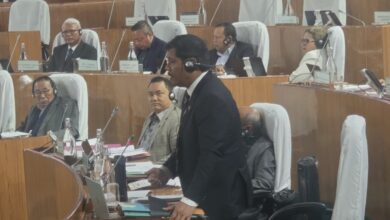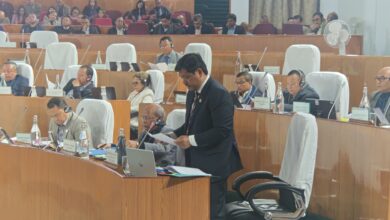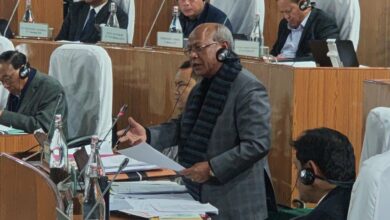UK-India workshop focuses on Al-based climate modelling centre & policy making

Shillong, Feb 20: The state goverment in collaboration with the British High Commission has organized a one-day UK-India Knowledge Exchange Workshop on Al-Based Climate Modelling Centre and Policy Making.
The workshop focused on the role of Artificial Intelligence (Al) in addressing climate-related challenges and explored how Al-based climate modelling can aid decision-making. Experts and stakeholders engaged in discussions on leveraging Al to enhance climate resilience and environmental sustainability.
In the opening address, Joram Beda, Director General, Meghalaya Climate Change Centre, emphasized the urgent need to tackle climate change. He highlighted the significance of subject-driven engagement and the potential for establishing a dedicated Al-based Climate Modelling Centre to address environmental challenges.
RS. Gill, Principal Chief Conservator of Forests & Head of Forest Force underscored the state’s commitment to forest conservation and the critical role of Al in climate action. He stressed the importance of coordinated efforts and communication in addressing climate-related concerns.
Dr. Andrew Fleming, British Deputy High Commissioner to East & Northeast India, acknowledged Meghalaya’s visionary leadership in climate action. He emphasized the workshop’s significance in delivering tangible results and highlighted the shared commitment of the UK and India in tackling climate change, with an impact extending beyond Meghalaya and across India.
Experts from IIT Bombay, University College London, Aarhus University, and the Indian Meteorological Department shared insights on data-driven approaches, hydrological modelling, and ethical Al governance. Key discussions revolved around integrating Al in climate resilience, ensuring data accuracy, and developing a roadmap for an Al-based Climate Modelling Centre in Meghalaya.
Government departments, including the Soil and Water Conservation Department, Meghalaya Basin Management Agency (MBMA), and the Forest and Environment Department, presented on critical themes such as springs and watershed management, GIS and UAV-driven digital transformation, Afforestation initiatives under the Compensatory Afforestation Fund Management and Planning Authority (CAMPA).
The urgent need for data standardization, real-time monitoring, and multi-stakeholder collaboration was highlighted . Participants spoke about the importance of integrating Al in climate budgeting, enhancing data accessibility, and fostering regional cooperation to strengthen climate adaptation strategies.





